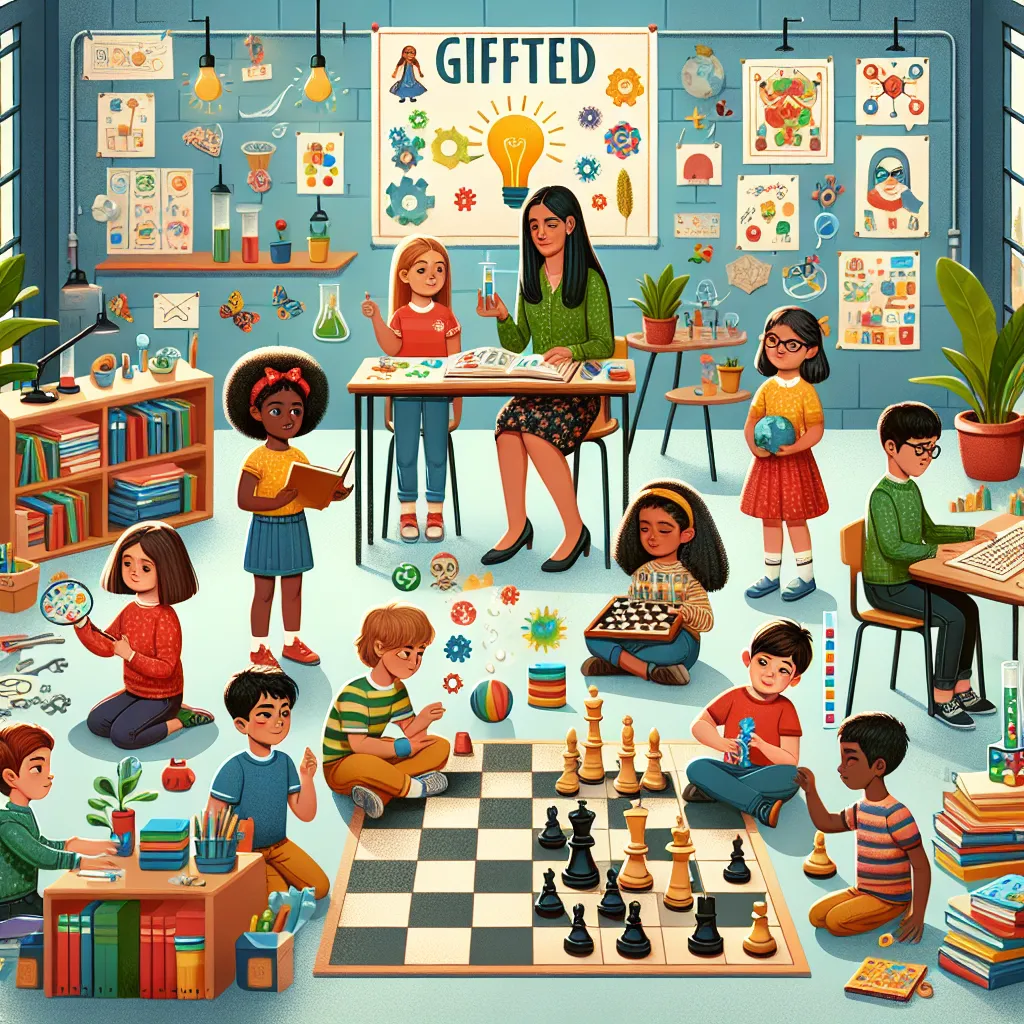Creating A Positive Learning Environment For Gifted Kids
Creating a positive learning environment for gifted kids is a multifaceted challenge that involves addressing their intellectual, social, and emotional needs. These children require unique educational strategies that foster academic growth while ensuring their overall well-being. Understanding how to cultivate such an environment can significantly impact their educational experience and personal development.
If you are looking for legitimate IQ Tests which pass the entry bar for Mensa, see our IQ Tests.
**Understanding Giftedness**
Gifted children often display advanced abilities in one or more areas compared to their peers. These abilities might range from extraordinary intellectual prowess to exceptional talent in music, art, or physical activities. Recognizing and understanding these unique traits is the first step in creating an environment that nurtures their growth.
Giftedness is commonly identified through a combination of IQ tests, academic performance, and behavioral observations. For instance, children with an IQ over 130 are often considered gifted. However, it’s essential to consider that giftedness is not solely about intellectual capabilities; it also encompasses creativity, emotional sensitivity, and social awareness.
**The Importance of a Positive Learning Environment**
A positive learning environment is crucial for the development of gifted kids. Such an environment should stimulate their intellectual curiosity while encouraging emotional and social development. It is essential that gifted children feel challenged yet supported, ensuring they do not become bored or face undue stress.
Creating this environment involves various strategies, including differentiated instruction, opportunities for independent study, and social and emotional learning support. Educators and parents must work collaboratively to ensure that the needs of these children are met consistently.
**Classroom Strategies for Gifted Learners**
1. **Differentiated Instruction**: Differentiation in the classroom means tailoring teaching methods to meet the varied needs of students. For gifted learners, this might involve offering more complex material, advanced projects, or personalized learning plans. Differentiation ensures that gifted children remain engaged and challenged by their coursework.
2. **Acceleration**: Some gifted children benefit from acceleration, such as skipping grades or taking advanced courses earlier than their peers. This strategy can help keep them challenged and prevent boredom. However, it’s important to consider the child’s social and emotional readiness for such a transition.
3. **Enrichment Programs**: Enrichment opportunities outside the standard curriculum can provide gifted kids with additional challenges and learning experiences. These might include academic competitions, specialized workshops, or creative projects. Enrichment activities can help extend their learning beyond the classroom.
4. **Project-Based Learning**: Allowing gifted students to engage in project-based learning can be highly effective. This form of learning encourages critical thinking, problem-solving, and collaboration skills. Projects tailored to their interests and abilities can provide deep, engaging learning experiences.
**Social and Emotional Support**
Gifted children often experience social and emotional challenges alongside their academic abilities. It’s crucial to provide an environment that supports these aspects of their development.
1. **Social Interaction**: Encouraging social interaction with peers of similar interests and abilities can help gifted children feel understood and accepted. This might involve participation in clubs, interest groups, or specialized programs where they can connect with like-minded individuals.
2. **Emotional Intelligence**: Teaching emotional intelligence skills is essential for gifted kids. These skills can help them navigate the complexities of their heightened sensitivity and emotional awareness. Activities that promote empathy, self-awareness, and emotional regulation can be particularly beneficial.
3. **Counseling Support**: Access to counseling services can provide gifted children with the support they need to manage stress, anxiety, or social difficulties. A counselor familiar with the needs of gifted children can offer guidance and strategies to help them thrive.
**Parental Involvement**
Parents play a pivotal role in creating a positive learning environment for their gifted children. Their involvement and support can reinforce the educational strategies implemented at school.
1. **Advocacy**: Parents should advocate for their child’s needs within the educational system. This might involve working with teachers to develop individualized education plans (IEPs) or seeking out specialized programs that cater to gifted learners.
2. **Home Environment**: Creating a stimulating home environment is equally important. Parents can provide access to books, educational games, and other learning resources. Encouraging intellectual curiosity through discussions, experiments, and creative activities can further enhance their learning experience.
3. **Emotional Support**: Emotional support from parents is crucial. Understanding and acknowledging the unique challenges that come with giftedness can help children feel validated and supported. Parents should foster open communication, allowing children to express their feelings and concerns freely.
**Collaborative Efforts and Resources**
Creating a positive learning environment for gifted children requires collaboration among teachers, parents, counselors, and the children themselves. Utilizing available resources and support systems can make a significant difference.
1. **Professional Development for Educators**: Teachers should have access to professional development opportunities that focus on the needs of gifted learners. Training in differentiated instruction, emotional intelligence, and social dynamics can equip educators with the skills necessary to support these children effectively.
2. **Support Networks**: Parents and educators can benefit from connecting with support networks and organizations dedicated to gifted education. These networks provide valuable resources, such as workshops, conferences, and forums for sharing experiences and strategies.
3. **Specialized Programs**: Many communities offer specialized programs for gifted children, including weekend or summer camps, online courses, and extracurricular activities. These programs can provide additional enrichment and challenge outside the regular school curriculum.
**Conclusion**
Creating a positive learning environment for gifted kids involves recognizing their unique needs and implementing strategies that foster their intellectual, social, and emotional development. By differentiating instruction, providing enrichment opportunities, and offering robust social and emotional support, educators and parents can help gifted children thrive. Collaborative efforts among all stakeholders, coupled with the utilization of available resources, lay the foundation for a supportive and stimulating learning experience. Through these comprehensive efforts, we can ensure that gifted children not only reach their full academic potential but also grow into well-rounded and emotionally balanced individuals.



Leave a Comment